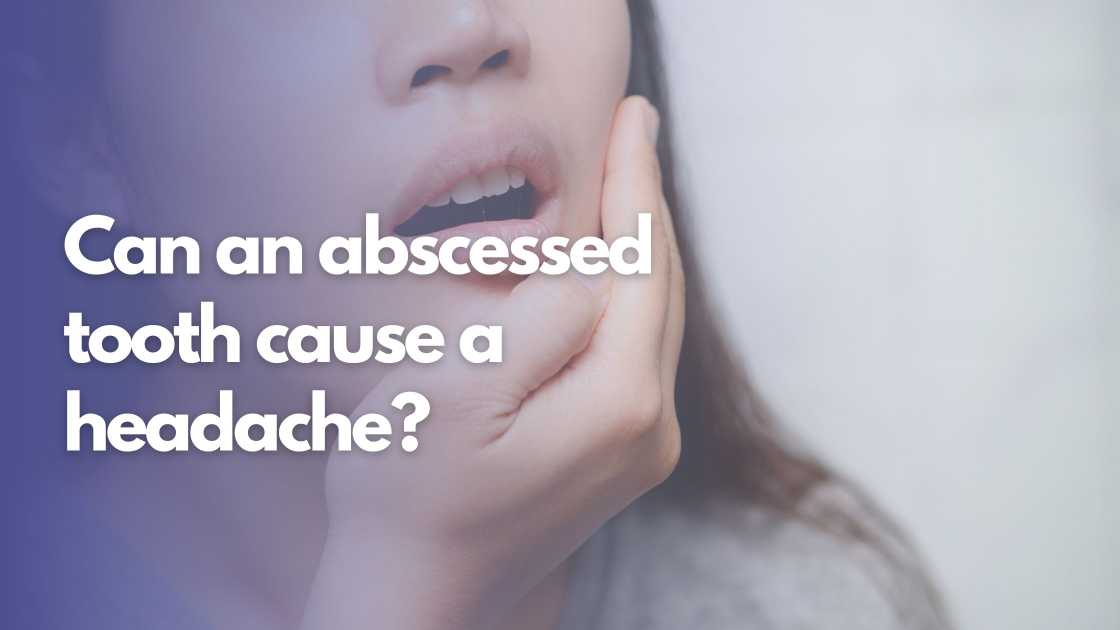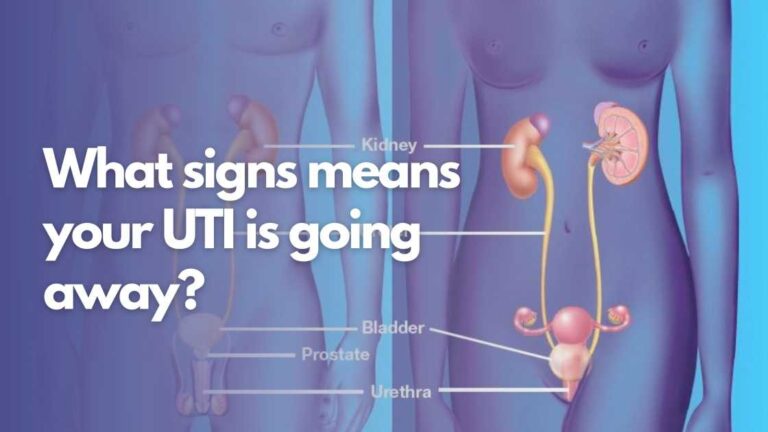If you have a tooth abscess simultaneously with a headache or persistent headaches then you may be asking yourself this question “can an abscessed tooth cause a headache?”.
A tooth abscess is a buildup of pus from a bacterial infection and can form inside the teeth or gums or in the bone that supports the teeth.
People frequently inquire whether an abscessed tooth might produce a headache. Headaches are unpleasant and can interfere with everyday activities
In this article, you’ll learn whether an abscessed tooth can cause headaches or not but before then you fully grasp what a tooth abscess is. So, let’s start with that.
What is a tooth abscess?
A tooth or dental abscess is a pocket of pus (a thick fluid comprising white blood cells and cellular debris, which may be white, yellow, pink, or green) that can occur in various regions of a tooth due to a bacterial infection.
Tooth accidents, medical issues that affect your immune system, or inadequate dental hygiene may lead to a bacterial infection.
An abscessed tooth can produce moderate to severe pain that can travel to your ear or neck and may become a serious, life-threatening condition if left untreated (1, 2).
Can an abscessed tooth cause a headache?
A patient with a dental abscess may experience a throbbing one-sided headache, nausea, and vomiting if the infection remains untreated.
There is a close link between the trigeminal nerve and toothaches that cause headaches (migraine). This nerve is responsible for sensation in your face, including your lower and upper lip, gums, and teeth, and is also for jaw and tooth functions such as chewing, biting, and swallowing.
Problems with the teeth and jaw can trigger migraine with facial pain. Thus, an underlying tooth infection could affect the supplying trigeminal nerve branch, resulting in a headache (migraine) (3, 4).
Types of dental abscess
The location of a dental abscess determines the type of abscess. The following are the three most prevalent types:
Gingival abscess
An abscess in the gum tissue only and does not affect the tooth is known as a gingival abscess.
Periapical abscess
An abscess at the tip of a tooth’s root or the soft pulp is a periapical abscess.
Periodontal abscess
An abscess on the gum close to the root of a tooth is known as a periodontal abscess. It has the potential to spread to adjacent tissue and bone (5, 6).
Symptoms of dental abscess
As mentioned earlier, an abscessed tooth can cause headache but aside from that, there are a lot of other symptoms that it may cause.
A throbbing pain near a tooth or in your gums is the most common indication of an abscessed tooth. The discomfort frequently appears suddenly and worsens with time.
A tooth abscess may cause other symptoms, such as
- Fever
- Bad breath
- Insomnia
- Difficulty in swallowing
- Difficulties in opening of the mouth
- Sensitivity to cold or hot food and drinks
- Pain around the ear, jaw or neck
- Swelling of the face
- Facial redness
- Pain when chewing or biting
- Pain when you lie down
- Swollen and red gums
- Loose teeth
Dental abscess treatment
The goal of treatment is to get rid of the infection, relieve discomfort and drain the pus.
If you are experiencing signs of a tooth abscess, you should consult a dentist as soon as possible.
Relieving pain from a tooth abscess
Consult your pharmacist on a suitable choice of pain killer(s) to use while you wait to see a doctor.
The preferred painkillers for dental abscesses are ibuprofen, aspirin or diclofenac, but if you cannot take these drugs for medical reasons, you can take paracetamol instead. Medical reasons to avoid some of these painkillers include:
- People with asthma should not take ibuprofen, aspirin, or diclofenac
- stomach ulcers: if you have, or ever had a stomach ulcer, do not take ibuprofen, aspirin or diclofenac
- children under 16 years should avoid aspirin
- pregnant and breastfeeding mothers should avoid use of aspirin, ibuprofen or diclofenac
The following may also help to reduce pain:
- avoid hot or cold food and drink if they make the pain worse
- use a soft toothbrush and brush gently around the affected tooth
- try chewing soft foods, if possible the side of your mouth opposite the affected tooth (7)
These temporary measures can help manage your symptoms, but you should seek early help from a dentist.
Treatment options vary depending on the nature and severity of your abscess and include:
A root canal treatment
A root canal is a procedure that involves drilling into a tooth to drain any abscess and remove any infected pulp, and the pulp chamber is filled and sealed.
Incision and drainage
A small cut (incision) is made to drain the abscess from the affected portion. The dentist will use a local anesthetic to numb your mouth before and during the procedure, and use saline solution to clean the region afterward.
Tooth extraction
Your dentist may remove your tooth before draining the abscess if it is damaged and the root canal treatment is not possible.
Antibiotics
Your dentist may prescribe oral antibiotics to help clear the infection if the infection has progressed beyond the abscessed area or if you have a weaker immune system. The antibiotics may be taken together with painkillers.
Foreign object removal
If a foreign object in your gums is causing your abscess, your dentist will remove it. After that, they’ll clean the region using a saline solution.
Surgery
A periapical abscess with a reoccurring infection may require surgical removal of infected tissue. If you have a periodontal abscess, you may need your gum tissue altered and your periodontal pocket removed. An oral surgeon will carry out this surgery.
If a dental abscess returns after surgery, the tooth may be removed (8, 9)
Complications of abscess tooth
An abscessed tooth should be treated by a dentist as soon as possible. Even if it’s already ruptured, your doctor should examine and clean the area to ensure that the infection doesn’t spread. Complications can only occur if the abscess is left untreated. Possible complications include
Sepsis
The body’s severe response to an infection is sepsis. It’s a medical emergency that could kill you. Sepsis develops when substances released in the bloodstream to treat an infection cause widespread inflammation. This can set off a chain reaction that damages several organ systems, causing them to fail and, in rare cases, death.
Fever, trouble breathing, low blood pressure, a high heart rate, and mental confusion are all symptoms.
Dental cysts
If the abscess is not treated, a dental cyst ( fluid-filled cavity) may form at the bottom of the root of the tooth. The cyst has a significant risk of becoming infected. If this occurs, antibiotics and possibly surgery may be required.
Ludwig’s angina
When bacteria from a dental abscess travels to the mouth’s floor, it causes an infection. Under the tongue and in the neck, there is swelling and intense pain.
The patient may struggle to breathe in severe circumstances. Ludwig’s angina is a life-threatening disorder. Antibiotics are used to treat the patients. If breathing problems are present in people with severe Ludwig’s angina, a procedure to open the airway may be required.
Summary
An abscessed tooth can cause a headache and, if not treated early, can lead to serious complications such as sepsis, Ludwig’s angina, dental cysts, and many more. An abscessed tooth can be treated if noticed early. Treatment options include an incision, root canal treatment, extraction of the tooth, etc.







Leave a Comment